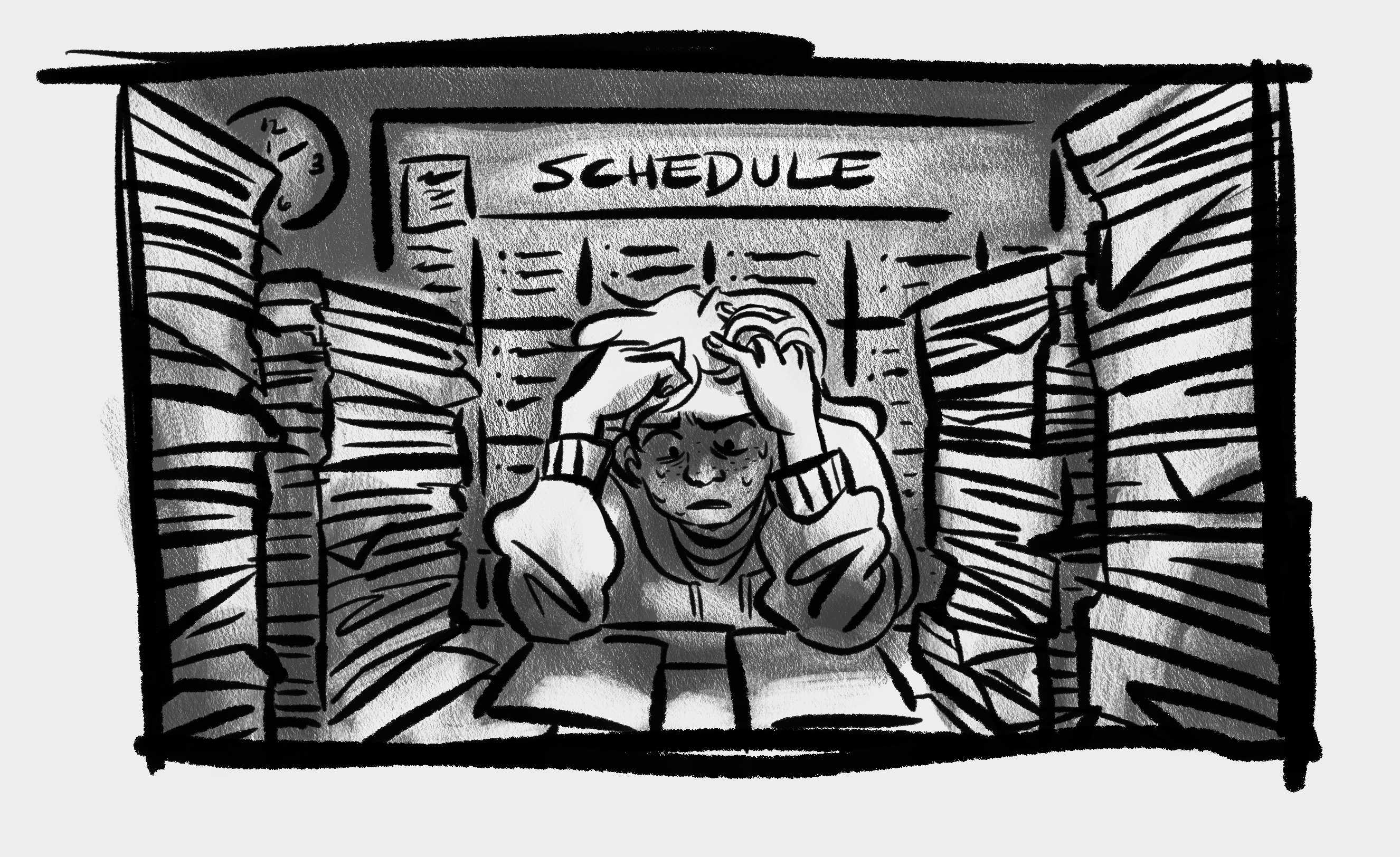Time commitments can pile up if you do not manage your time carefully. Between classes and extracurriculars, it is easy to get overwhelmed from too much work.
This semester, I took on a full course load and an internship at the U.S. Department of State that required me to work at least 32 hours per week. I knew it was an ambitious schedule at the time, but I was convinced I could make it work. Other students typically take on multiple responsibilities and seem to find balance, so I thought I could too.
But the semester is more than just work – there were other life responsibilities I needed to account for in addition to my classes and internships. Mundane tasks like laundry, grocery shopping, cooking and cleaning were burdensome because I was burnt out from my packed schedule by the time I could complete each task. I often found myself asking for extensions on papers or turning assignments in late knowing I would be penalized by my professor, but I did it anyway.
When students arrange their work and class schedules next semester, they need to recognize when they have spread themselves too thin. While balancing internships, class and work may seem like the norm at GW, it is OK to take on less and find a better balance between your responsibilities.

Cartoon Jeanne Franchesca Dela Cruz
GW prides itself as a leading school for internship opportunities, but the amount of work I took on is not the norm. University President Thomas LeBlanc warned freshmen of the negative impact of “internship culture” earlier this academic year, and he is right that students should not bite more than they can chew.
I was not aware of the stress I would encounter this semester with an overloaded schedule. By the time I settled in each night to do homework, I was so tired from a day of work that I only wanted to sleep. But the anxiety of being penalized for not doing my work forced me to stay up late and complete my assignments.
In addition to being sleep deprived, I was not making time to eat. I often snacked on protein bars whenever I had a free minute. I felt my body and mind call on me to slow down and take a minute to breathe, but I figured I could tough it out until the end of the semester.
The bottom line is I fell victim to the internship culture that LeBlanc warned students about that assumes students should be doing something important at all times. But too often, students push themselves to the point where they are running themselves into the ground in an attempt to do the most. This internship culture burnt me out until I could not put my all into every responsibility.
When you are overworked to your breaking point, something has to fall to the wayside and sometimes what you forget to do is take care of yourself. My experience cannot show students how to take care of themselves, but it can remind you to be self-aware. As important as your studies and resume-building internship may be, your health should be a priority. You need food, sleep and social interaction to stay physically and mentally sane.
If students want to take on an internship and a full course load, they should recognize the potential hardships and be prepared to drop activities. It is OK to take breaks from student organizations, but it is not OK to stop prioritizing yourself.
Do what took me too long to do – recognize when you are in over your head and have committed to more than you can handle. Be honest with yourself about how much you can get done in a day, and do not get discouraged if you do not accomplish all that you want.
Kris Brodeur, a junior majoring in international affairs and Latin American and hemispheric studies, is a columnist.

